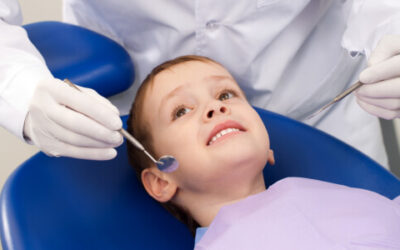There are approximately 323 million people living in the U.S. Of them, about 120 million are missing at least one tooth and 36 million are completely edentulous. There are many reasons why someone could lose a permanent tooth, whether due to decay, periodontal disease, or even a trauma. If you lose an adult tooth, you will be faced with a choice: Do you replace it or not?

What to Expect When You Lose a Tooth
You may have several teeth, but when it comes to your smile and your oral health, every tooth matters – and not just the ones you can see when you smile. When you lose a tooth, the ramifications are both immediate and delayed. Initially, you may notice the aesthetic differences that may affect your self-esteem quality of life, and then come the changes in your health, which can worsen over time.
Changes in Appearance
An initial tooth loss can create a noticeable gap in your smile – especially if you lose a prominent tooth toward the front of your mouth. While this can initially affect your self-confidence and perhaps even your willingness to smile, additional changes can happen over time.
Without the presence of a tooth root, the jaw bone that once surrounded the missing tooth begins to deteriorate and change to look and shape of your face. Depending on where the missing tooth once was, you may notice a sunken appearance or cheeks that begin to hollow-out and sag. In addition, the surrounding teeth may begin to shift position and fill in the gap left behind by the missing tooth. When the tooth moves from their proper alignment, they can appear crooked, which further impacts the aesthetics of your appearance.
Changes in Health
When it comes to tooth loss, the consequences are more than just those that meet the eye. As the surrounding teeth begin to shift out of place, your bite may begin to change. When the upper and lower jaws no longer meet in their ideal position, it can cause jaw pain, swelling, and the development of temporomandibular joint problems (TMJ disorder).
In addition, crooked teeth make it difficult to reach all of the surfaces of your teeth with a toothbrush and floss. This creates a safe-harbor for harmful bacteria to grow and infect the gums and teeth. Without treatment, this creates an ongoing cycle of tooth decay and gum disease that can lead to additional tooth loss (and the cycle starts over again).
What are Dental Implants?
Think of dental implants as the ‘next best thing’ to your natural teeth. Implants are artificial tooth roots made of bio-compatible materials that are implanted into your gums and jaw bone where your natural tooth once stood. Over time, the implant begins to integrate with the surrounding bone, creating a very strong foundation for an artificial crown or other restoration.
By placing a dental implant where a real tooth once was, you can ‘fool’ the body into believing a tooth still exists in that location. This helps to prevent bone deterioration and keeps the surrounding teeth from shifting out of place. In addition, crowns can be customized to match the size, shape, and color of the surrounding teeth, making it nearly impossible for anyone to know you are missing one or more teeth.
Prevent Future Tooth Loss
Whenever possible, it is best to preserve any unproblematic natural tooth that can be saved. If you lost a tooth because of decay or periodontal disease, taking some proactive steps toward better oral health may prevent additional tooth loss in the future. Always have cavities treated and filled as soon as possible, and to see a dentist about treatments for gum inflammation. If you play contact sports or engage in other physical activities, you may need to be fit for a mouth guard that can prevent tooth loss due to trauma.
For more information about permanent tooth replacement or to find out how you can better prevent tooth loss in the future, contact our dental office to schedule your next consultation. We look forward to serving you soon.


